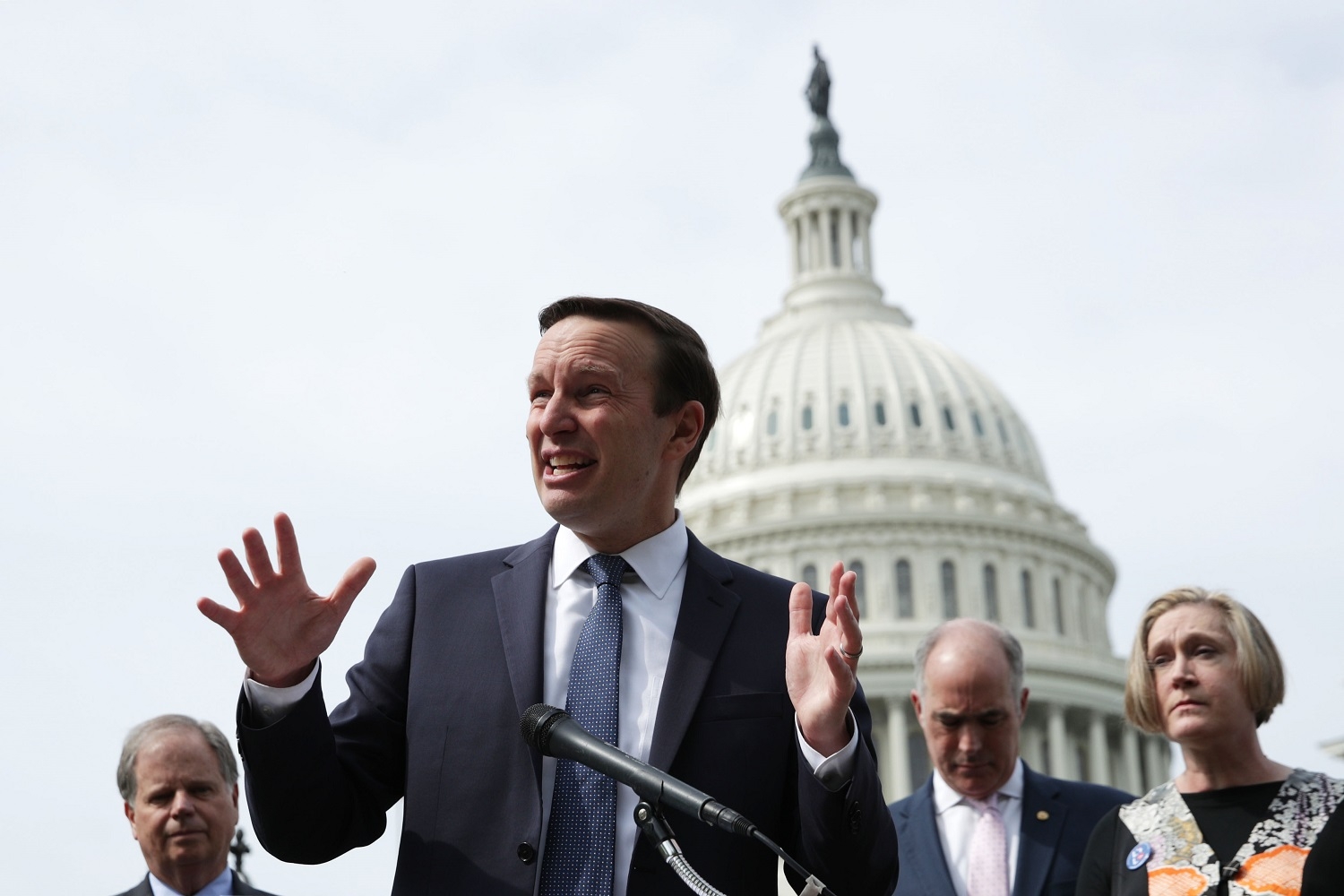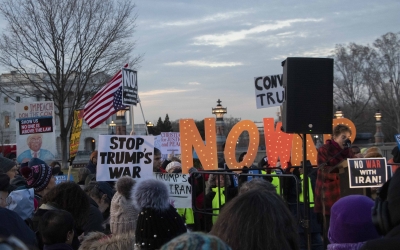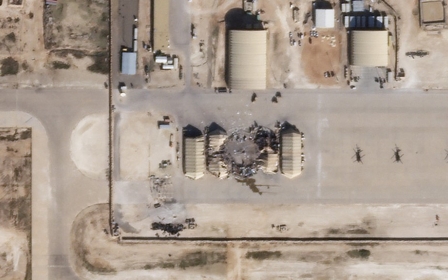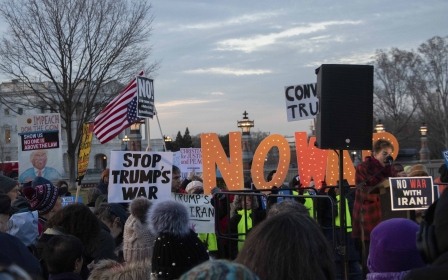Killing Soleimani made US 'weaker' in Middle East, US senator says

The United States is in a "weaker" position in the Middle East after the killing of top Iranian general Qassem Soleimani, US Senator Chris Murphy said, stressing that the strike did not advance any of the Trump administration's stated objectives in the region.
"It's really extraordinary to think what has happened in one week," Murphy said at an event at the Atlantic Council in Washington on Thursday.
The Democratic senator, who is an outspoken critic of President Donald Trump's foreign policy, said the killing of the general has brought Tehran closer to obtaining nuclear weapons after it announced that it was abandoning some commitments to the nuclear agreement following the US strike last week.
Moreover, Murphy added, killing Soleimani is raising calls for US troops to withdraw from Iraq, which he described as a "gift to ISIS", the Islamic State (IS) group.
Both the Iraqi parliament and Prime Minister Adel Abdul Mahdi have called for American forces to leave Iraq. The Iraqi government was incensed over the killing of Soleimani on its soil, especially as it was not informed of the operation.
Murphy said the strike also brought Iranians closer to their government after weeks of anti-government protests that had been met with brutal force.
"Iran, just weeks ago, rallying against the regime, now wrapping its arms around it… All of this happening in seven days is dizzying, but to know that it happened by choice is maddening as well," he said.
Murphy's assessment stands at odds with that of the Trump administration, which has argued that the strike has restored a "level of deterrence" with the Islamic Republic.
Tehran responded to the killing of Soleimani by firing ballistic missiles at military bases that host American troops in Iraq earlier this week. The attack did not result in any casualties.
Was the threat 'imminent'?
Trump has said that the hit on Soleimani stopped him from carrying out attacks against American targets.
On Thursday, Murphy reiterated the views of many of his Democratic colleagues both in the House and the Senate - that intelligence officials failed to demonstrate to members of Congress that killing Soleimani was necessary to thwart any Iranian attacks against US forces and interests.
'All of this happening in seven days is dizzying, but to know that it happened by choice is maddening as well'
- Chris Murphy, US senator
"I believe this administration made a decision to kill Qassem Soleimani unconnected to the threats made against the United States, and they're now trying to justify that decision through vague talk of an imminent threat that may not have existed," the senator said.
The administration delivered a classified intelligence briefing to both chambers of Congress on Wednesday to demonstrate that a threat was imminent.
The question whether Americans were endangered or not is a crucial one; it factors into the legality of the strike. While the president is the commander in chief of the armed forces, the Constitution gives Congress the authority to declare war.
Without a specific danger to Americans, Trump may have overstepped his authority by ordering the killing of a foreign government official without the consent of Congress.
On Thursday, the House of Representatives passed a resolution to limit Trump's ability to strike Iran without the approval of the legislative branch.
"It's not enough to suggest that the Iranians were planning an attack against the United States… If the attack isn't imminent, if the attack isn't specific, I believe the Constitution requires the administration to come to Congress to get that authorisation ahead of time," Murphy said shortly before that vote.
US Secretary of State Mike Pompeo reignited the debate around the veracity of the claims of an imminent threat by Iran when he told Fox News on Thursday night that the time and location of the alleged planned attacks were unknown to US officials.
"There was no doubt that there were a series of imminent attacks that were being plotted by Qassem Soleimani," Pompeo said. "And we don't know precisely when and we don’t know precisely where, but it was real."
Critics were quick to point out that a threat is not imminent if it's not specific.
Pressed by a CNN reporter at a news conference on Friday, the secretary of state said the two statements are consistent.
"We had specific information on imminent threats," Pompeo told reporters.
"I don't know exactly which minute, you don't know exactly which day it would have been executed. But it was very clear - Qassem Soleimani himself was plotting a broad, large-scale attack against American interests."
Middle East Eye delivers independent and unrivalled coverage and analysis of the Middle East, North Africa and beyond. To learn more about republishing this content and the associated fees, please fill out this form. More about MEE can be found here.





